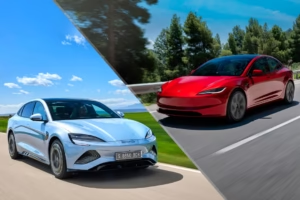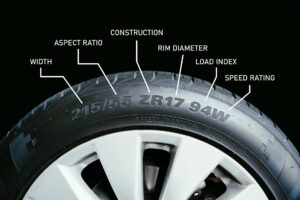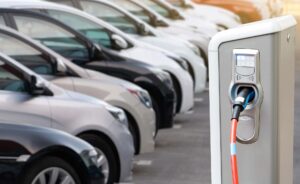As hybrid cars become more popular, a common concern among drivers is whether they lose fuel efficiency as time goes on. So, do hybrids lose MPG over time? While hybrid vehicles are designed to offer impressive fuel economy, several factors can impact their long-term performance. In this post, we’ll dive into the factors that could influence a hybrid’s MPG and whether you need to worry about any potential decline as your car ages.
Yes, hybrid cars can lose MPG over time, but the decline is usually gradual. Factors such as battery wear, driving habits, and regular maintenance play a key role. As the battery ages, it may not perform as efficiently, which can impact fuel economy. However, with proper care and maintenance, hybrids can still offer good fuel efficiency for many years.
Do Hybrids Lose MPG Over Time?
When comparing hybrid vs gas vehicles, hybrids tend to offer better fuel efficiency, but it’s important to know that they can lose MPG over time due to battery wear and other factors. So, do hybrids save money in the long run? While the initial cost may be higher, their improved fuel efficiency can lead to significant savings on gas over time.
Hybrid cars work by combining electric power and gasoline engines, allowing them to switch between the two for optimal fuel efficiency. This dual-power system helps reduce fuel consumption and emissions. However, regular maintenance is key to maintaining those savings and ensuring the vehicle continues to operate efficiently over time.
Factors That Impact Fuel Efficiency in Hybrid Cars
Hybrid cars are designed to save fuel by using a combination of electric power and gasoline, but certain factors can affect their overall fuel efficiency. For example, cold weather can significantly impact battery performance, leading to a drop in fuel economy.
This brings up the question: do hybrids lose MPG in cold weather? Yes, colder temperatures can reduce the battery’s ability to hold a charge, making the gasoline engine work harder. When comparing hybrid vs electric vs gas vehicles, hybrids typically offer better efficiency than gasoline-powered cars, but they aren’t as efficient as fully electric vehicles. Hybrids save fuel by switching between electric and gas power, optimizing fuel consumption. Additionally, regular maintenance can help keep your hybrid in top shape, ensuring it continues to save money on fuel over time.
How to Maintain Your Hybrid’s Fuel Economy
Maintaining your hybrid’s fuel economy requires attention to several factors. Hybrid cars are designed to save energy through regenerative braking and efficient use of both the electric motor and gasoline engine. To ensure your hybrid car continues to save energy, it’s essential to keep up with routine maintenance, such as checking tire pressure and ensuring the battery is in good condition.
While hybrids do use gas, they do so less frequently than traditional vehicles, helping reduce fuel consumption per km. You may also wonder, can a hybrid car run on gas only? Yes, most hybrids can rely solely on their gasoline engine when necessary, but their efficiency is maximized when both power sources are used in tandem.
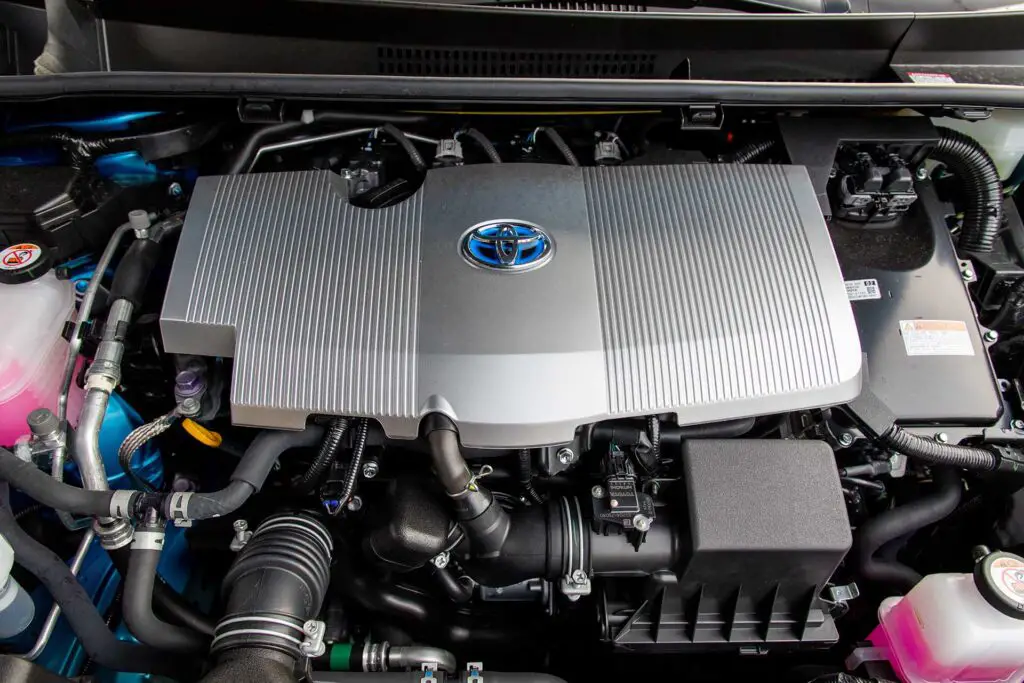
Signs That Your Hybrid’s MPG Might Be Declining
If you notice a significant drop in your hybrid’s fuel efficiency, it could be a sign that something is affecting its performance. One of the first things to check is whether the hybrid battery is nearing the end of its lifespan. Over time, as the battery ages, it may not hold a charge as effectively, which can cause the gasoline engine to work harder and reduce overall efficiency. Here are some signs that your hybrid’s MPG is declining:
- Decreased fuel efficiency – Decreased fuel efficiency compared to when the car was new.
- Frequent trips to a gas station – More frequent trips to the gas station despite usual driving patterns.
- The battery needs more time to charge – Longer time for the car to recharge its battery or inconsistent charging.
- Drop during acceleration – A noticeable drop in power during acceleration or when driving at higher speeds.
- Engine noise – Increased engine noise or vibrations when driving at low speeds.
- Exhaust smoke – Unusual exhaust smoke or odors during operation.
- Switching to gasoline – The car frequently switches to gasoline power, even in mild driving conditions.
- Warning lights – Warning lights related to the hybrid battery or engine appearing on the dashboard.
Key Factors That Contribute to MPG Loss in Hybrid Vehicles
Hybrid vehicles are known for their impressive fuel economy, but several factors can impact their long-term performance. One of the primary contributors to a decrease in MPG is the age and wear of the hybrid battery. As the battery ages, it may no longer be able to store and release energy as efficiently, requiring the gasoline engine to work harder.
The type of fuel a hybrid uses also affects efficiency. Using lower-quality fuel can reduce MPG. Additionally, aggressive driving or longer commutes on more challenging routes can increase driving stress, further impacting fuel efficiency. Drivers are responsible for maintaining their hybrid’s health by following best practices, such as regular tire checks and avoiding rapid acceleration.
Age and Wear of Hybrid Batteries
As hybrid vehicles age, the performance of the battery can decline. A worn-out battery will not offer the same efficiency as a new one, which directly impacts the overall fuel economy. Depending on the vehicle and its battery type, replacing or servicing the battery might be necessary to restore optimal performance.
If you’ve noticed a significant drop in fuel efficiency, this could be a sign that the battery needs attention. Regular services can help address battery-related issues before they become costly. With proper care, you can continue to enjoy the benefits of hybrid technology for a longer period.
Changes in Driving Conditions and Routes
Driving conditions have a big impact on how efficiently a hybrid car uses fuel. Hybrid vehicles excel in city driving, where their regenerative braking system recharges the battery. Changing routes can put additional strain on the car, lowering fuel efficiency. It’s important to adjust your driving habits when routes change. Knowing how to be a better driver by driving at steady speeds and avoiding unnecessary acceleration can significantly help maintain better fuel economy.
Did you know that Hybrid batteries are generally designed to last between 150,000 to 250,000 miles?
Maintenance Issues That Can Affect Fuel Economy
Proper maintenance is essential to keep a hybrid running at its best. Regular services such as those performed at the 30,000-mile service can prevent issues that might affect the vehicle’s performance. For example, if the exhaust system is clogged, it could cause inefficient fuel usage and increase car expenses.
Routine tire maintenance, proper fluid checks, and timely replacement of worn parts can all contribute to better fuel efficiency. It’s also important to stay on top of other factors, such as fuel quality, as these can make a noticeable difference in the vehicle’s performance. For those looking to own the most fuel-efficient hybrids, staying up to date with maintenance ensures you’re getting the best possible mileage over time.
Regular Maintenance Tips for Hybrid Cars
To keep your hybrid battery in top shape, it’s important to avoid extreme temperatures, as they can negatively affect battery performance. Regular maintenance, such as checking the battery’s health during routine service visits, can help identify potential issues early. Some manufacturers offer warranties of up to 8 years or 100,000 miles for hybrid batteries, providing peace of mind.
The Role of Tire Maintenance in Fuel Efficiency
Maintaining your tires is crucial for optimal fuel efficiency. Under-inflated tires can increase rolling resistance, leading to higher fuel consumption. Regularly checking and maintaining tire pressure can help ensure your vehicle operates efficiently. Additionally, rotating your tires as recommended can promote even wear and extend their lifespan.
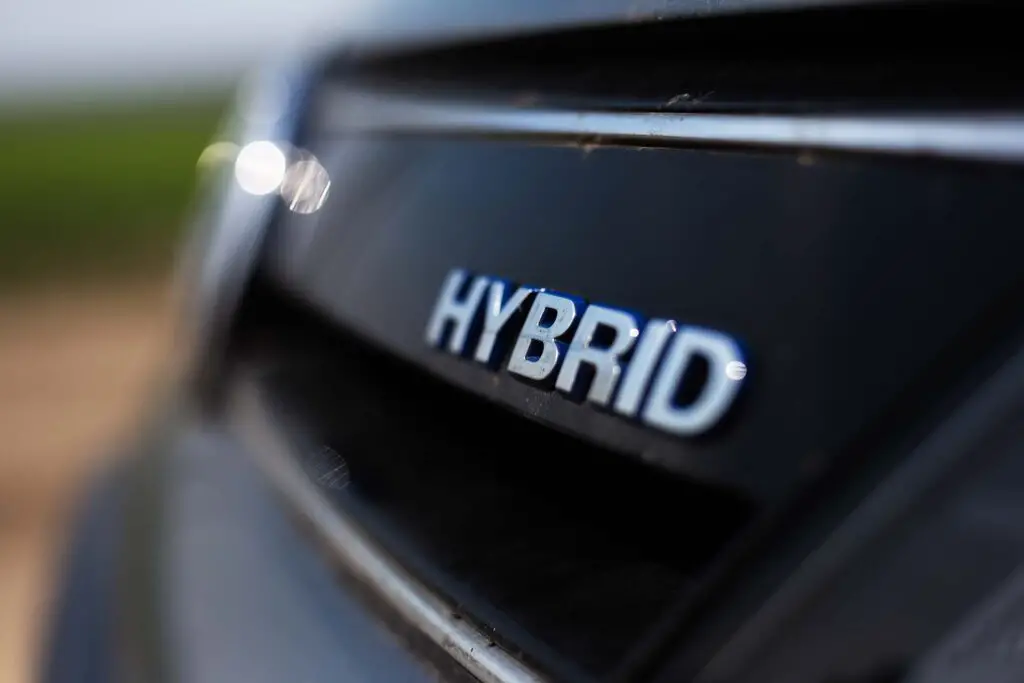
When to Seek Professional Help for Declining MPG
If you’ve noticed a consistent drop in your hybrid’s fuel efficiency despite practicing good driving habits and regular maintenance, it might be time to seek professional help. A qualified technician can diagnose potential issues like battery wear, engine problems, or clogged exhaust systems that could be affecting your hybrid’s performance. Ignoring signs of declining MPG may lead to bigger, more expensive problems down the road, so if things aren’t improving with minor tweaks, it’s a good idea to schedule a service visit.
Common Repairs That Can Improve MPG
Some common repairs can help restore your hybrid’s fuel efficiency. One of the most common culprits is the exhaust system, especially if it’s clogged or leaking. A clogged catalytic converter can lead to inefficient fuel burning, resulting in poor MPG. Additionally, replacing air filters or cleaning fuel injectors can help the engine run more efficiently. If the hybrid battery isn’t performing well, it may need recalibration or even replacement. Regular maintenance, like checking tire pressure, and oil changes, and ensuring the hybrid system is working properly, can keep fuel economy in check.
Should You Replace Your Hybrid Battery?
Replacing your hybrid battery is a big decision and can be costly, but it’s sometimes necessary to maintain optimal fuel efficiency. If your battery is showing signs of significant wear, such as shorter battery life, reduced charging efficiency, or noticeable drops in MPG, it might be time to consider a replacement. Some hybrid vehicles offer warranties on the battery, so it’s worth checking if your battery is still under coverage. If the battery is nearing the end of its life, replacing it will help restore fuel efficiency and ensure your car continues to perform well for years.
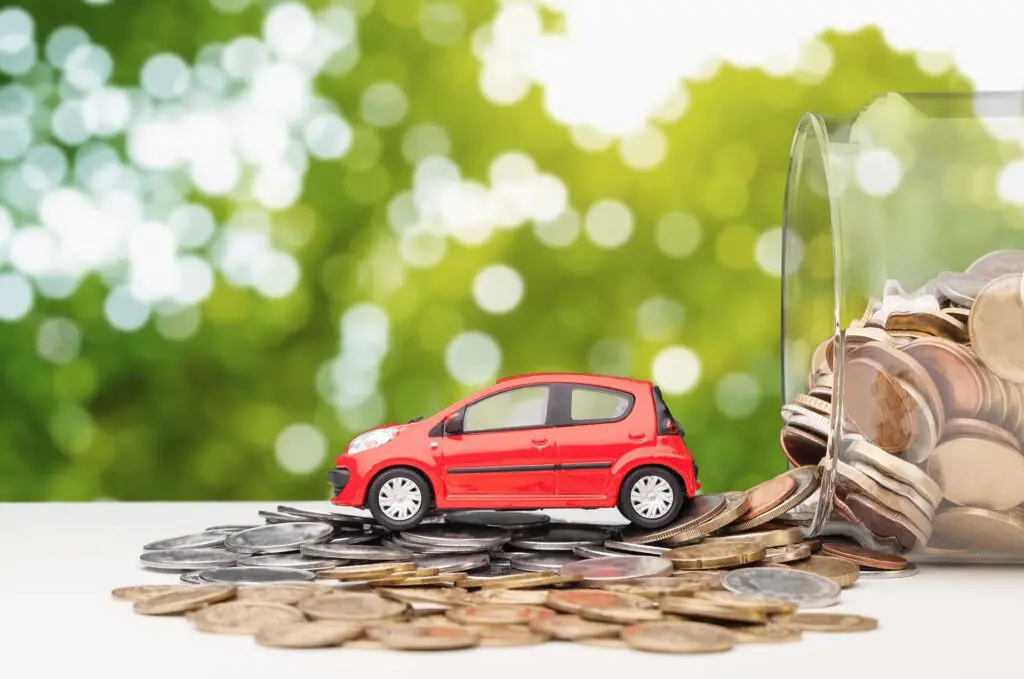
Keeping Your Hybrid at Peak Efficiency
Maintaining optimal fuel efficiency in your hybrid car requires attention to several factors, including battery health, driving habits, and regular maintenance. Over time, elements like the hybrid battery’s age, changes in driving conditions, and neglected maintenance can contribute to a decrease in MPG.
However, with the right care and timely repairs, such as addressing issues with the exhaust system or battery recalibration, you can preserve your hybrid’s fuel economy and save money in the long run. Regular check-ups and understanding when to seek professional help can make all the difference in keeping your hybrid running efficiently. By staying proactive, you’ll enjoy the full benefits of your hybrid car for years to come.

